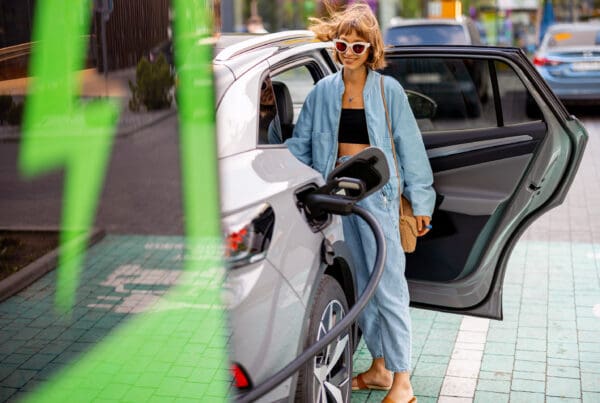Find out which types of EV charging stations are the fastest—and which might be the best fit for you.
You’re considering installing an electric vehicle charging station at your establishment. But then you discover that the world of electric vehicle supply equipment (EVSE) is more complex than you thought; there are several different types of charging stations—and even more brands to choose from. So how do you sort through all the information and make the wisest choice?
The first step is to get a basic understanding of the three levels of EV charging stations and the distinct characteristics of each one. From there, it shouldn’t be hard to identify which one will best fit your needs.
Let’s dive in…
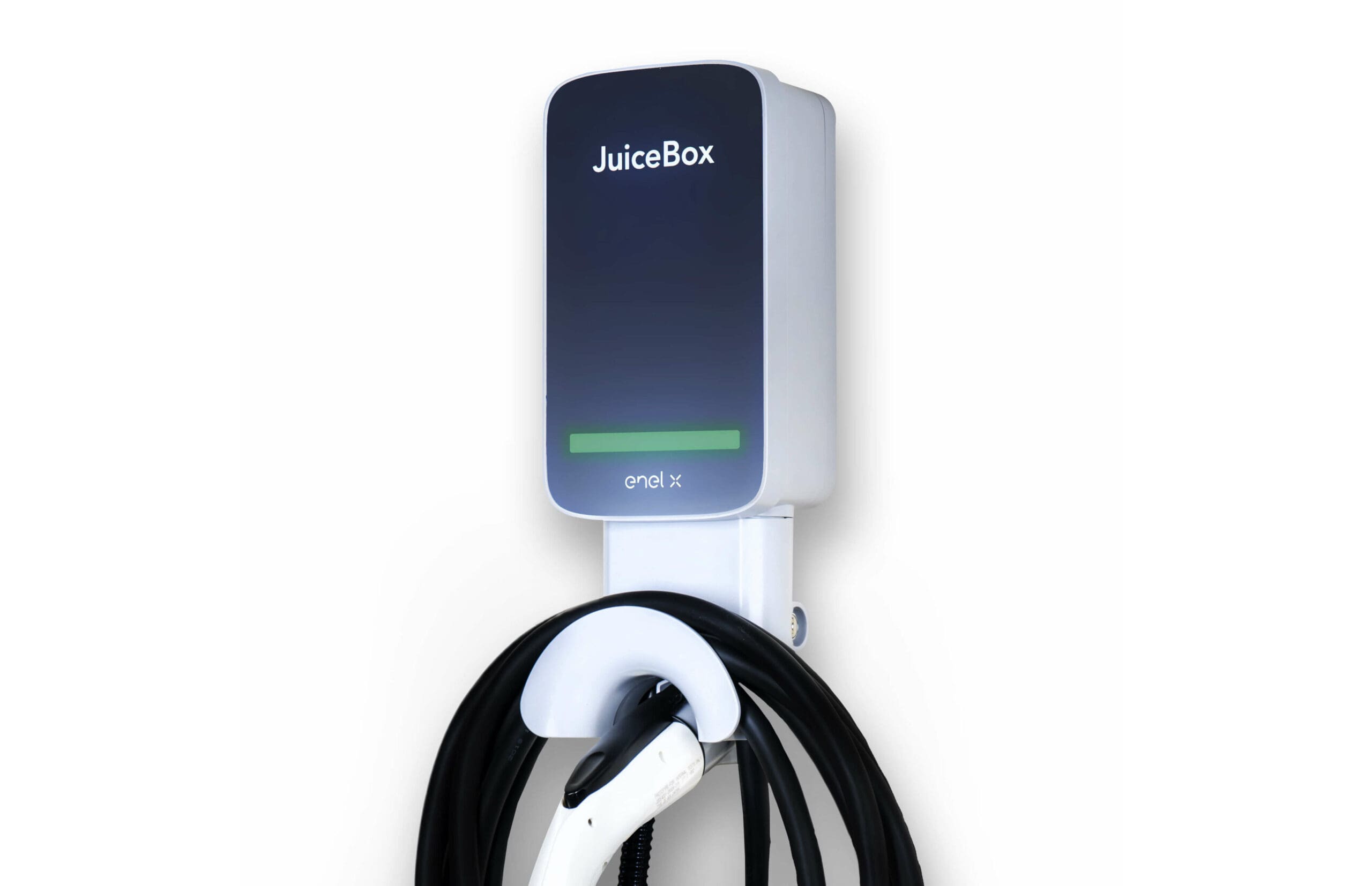
Level 1 EV Charging Station
Level 1 chargers are a popular choice among homeowners, and for good reason; they’re portable, affordable, and can plug into a standard three-prong wall outlet. If you bought a PEV (plug-in electric vehicle) from a dealer, you probably received an onboard Level 1 charger. It uses a 120-volt /15-amp circuit and requires no special equipment or infrastructure. All you do is plug the cord that comes with the charger into your car, and the other end into the wall. Then, let your EV battery charge while you sleep.
The downside is that a Level 1 charger is relatively slow compared to the Level 2 and 3 charging stations. Your overnight charge will generally give you 40 miles worth of electricity. So, if you’re traveling farther than 20 miles, you’ll need an additional charge before you head home.
This is why Level 2 and Level 3 chargers are appearing in more and more places. EV owners need that additional boost for anything more than a local trip.
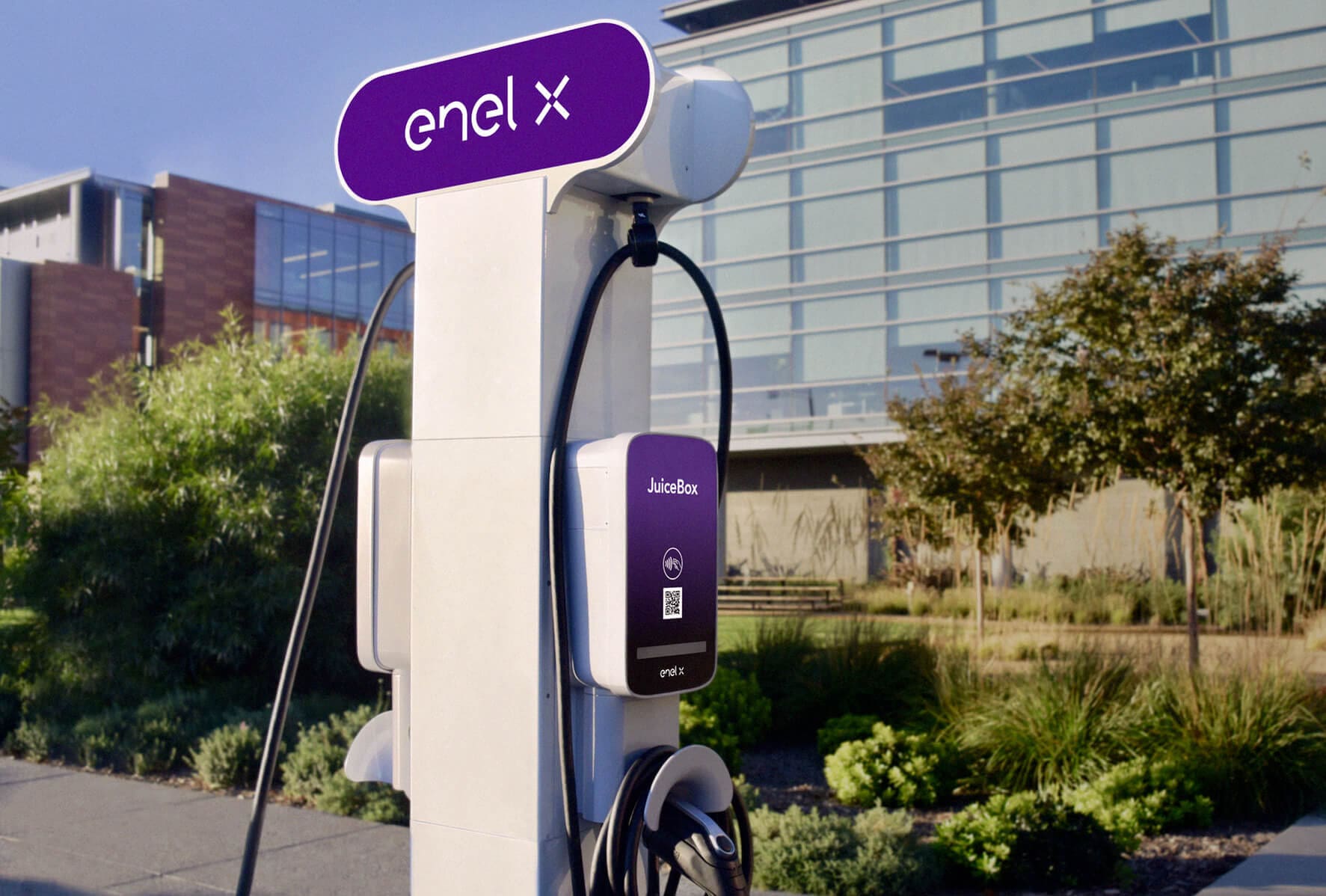
Level 2 EV Charging Station
A Level 2 charging station is currently the most common option for commercial enterprises and for some homeowners. It offers substantially more power than a Level 1 charger, while still being compact and relatively affordable compared to a Level 3 charger.
Level 2 Chargers:
- Use a 208 to 240-volt alternating current (AC) system.
- Can charge a vehicle ten times faster than a Level 1 charger.
- Can fully charge an EV in 1 to 11 hours, depending on battery capacity.
- Can provide 12 to 80 miles worth of electricity in one hour.
In some cases, a Level 2 charging station can use the electrical infrastructure already in place. But you’ll want to hire a professional to install it.
Level 2 Chargers are typically a good fit for:
- Some Single-Family Homes
- Apartment and Condo Complexes
- Public Parking Lots
- Office Buildings
- Gas Stations/Convenience Stores
- Shopping Malls
- Movie Theaters
- Retail Businesses
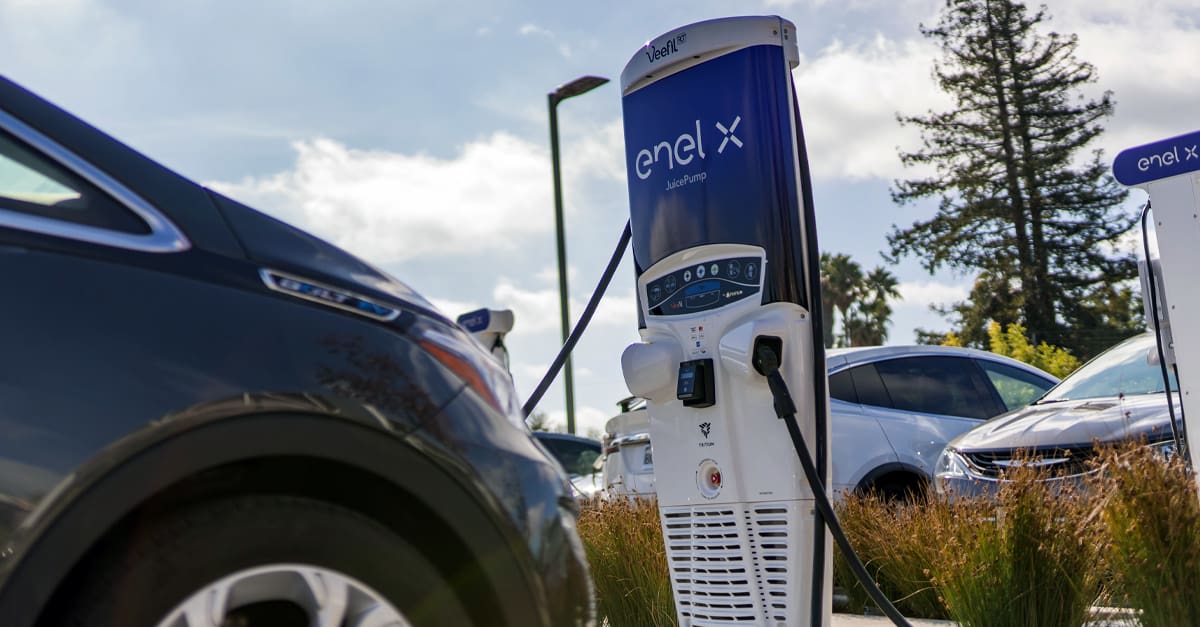
Level 3 EV Charging Station
As EVs proliferate, the need for fast, convenient charging locations is becoming more of an imperative. Commuters, shoppers and other travelers won’t always have hours to wait while their electric vehicles charge. Level 3, or DC fast charging stations, represent the answer to this emerging demand. A Level 3 charger is much more powerful and, therefore, faster than either Level 1 or Level 2. It uses a 489-volt direct current (DC) system. This means it requires special high-end electrical infrastructure and professional installation.
The main benefit of a Level 3 fast charging station is the remarkably short charging time.
Level 3 Chargers:
- Can fully charge an electric vehicle in 20 minutes to an hour.
- Can provide enough electricity for 75 to 1,200 miles in one hour (or 20 miles in one minute).
- Is the most efficient way to charge a vehicle for long-distance travel.
Level 3 chargers, while more expensive than the other options, are especially appropriate for establishments that cater to travelers, manage EV fleets, and/or want to provide charging options for clientele looking for time efficiency.
- Car Dealerships
- Retail Establishments
- Hotels
- Gas Stations/Convenience Stores
- Restaurants
- Businesses Located on Highway Corridors
Most Level 3 Charging stations come with their own cables for the EV to connect to. And as the EVSE industry has evolved, three different types of Level 3 cable connectors have emerged:
Tesla Supercharge—For Tesla owners, only.
CHAdeMO—For Nissan Leaf, Citroen C-Zero, Honda Fit, Kia Soul, and other EV brands.
Combined Charging System (CCS)—For Volkswagen, BMW, Chevrolet, Ford, Mercedes, and Volvo. (Tesla owners can also buy an adapter for use at these stations.)
Proprietary charging systems can make life confusing and inconvenient for EV owners, as they must try to determine which stations are compatible with their particular vehicle.
But there is a better way …
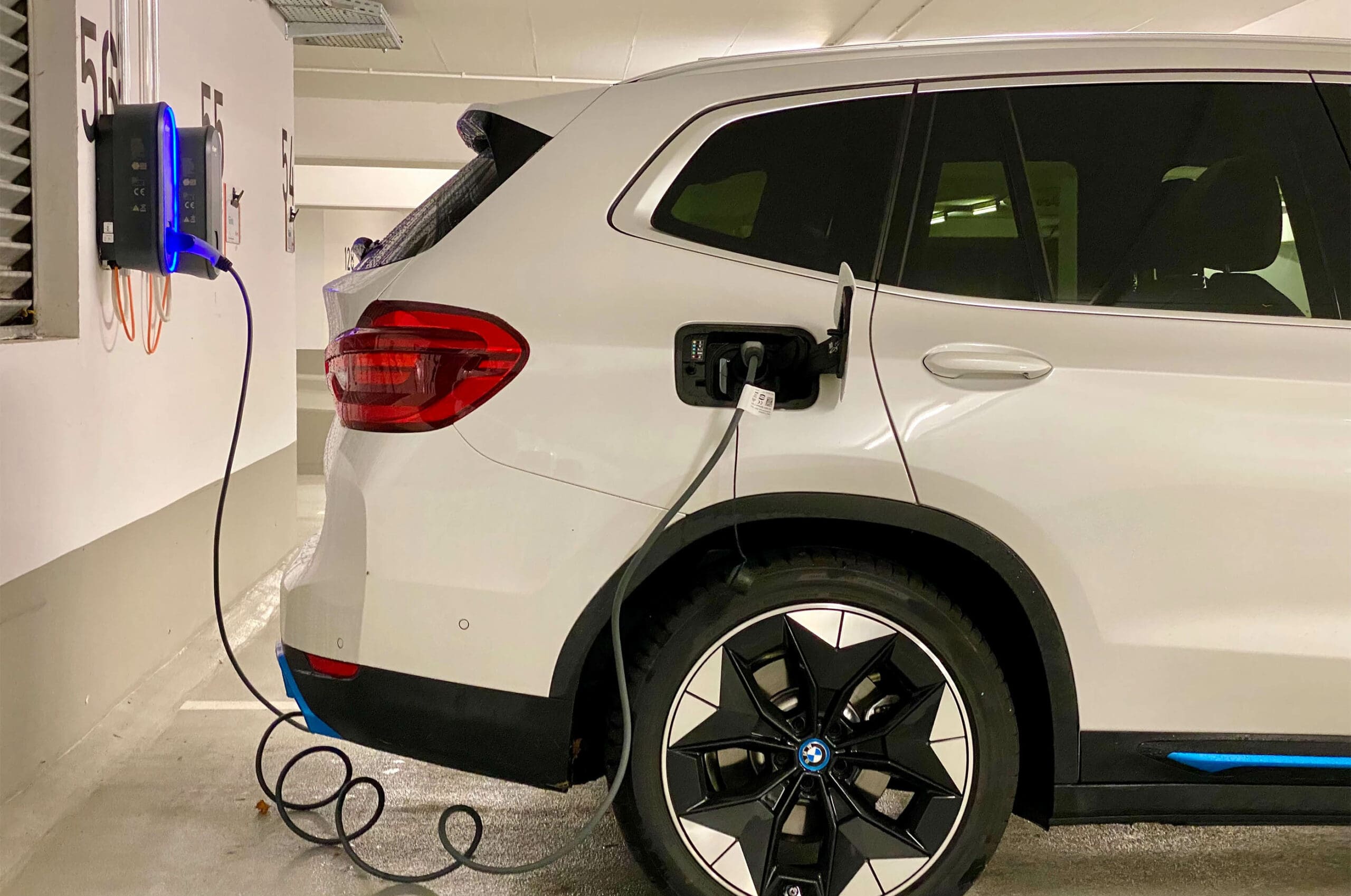
The Universal Fast Charging Station
To solve the problem of differing connectors, many businesses are opting for installing universal fast charging stations. These systems don’t include a connecting cable at all. Rather, they allow users to connect using their own cables and are universally compatible with all EV brands.


